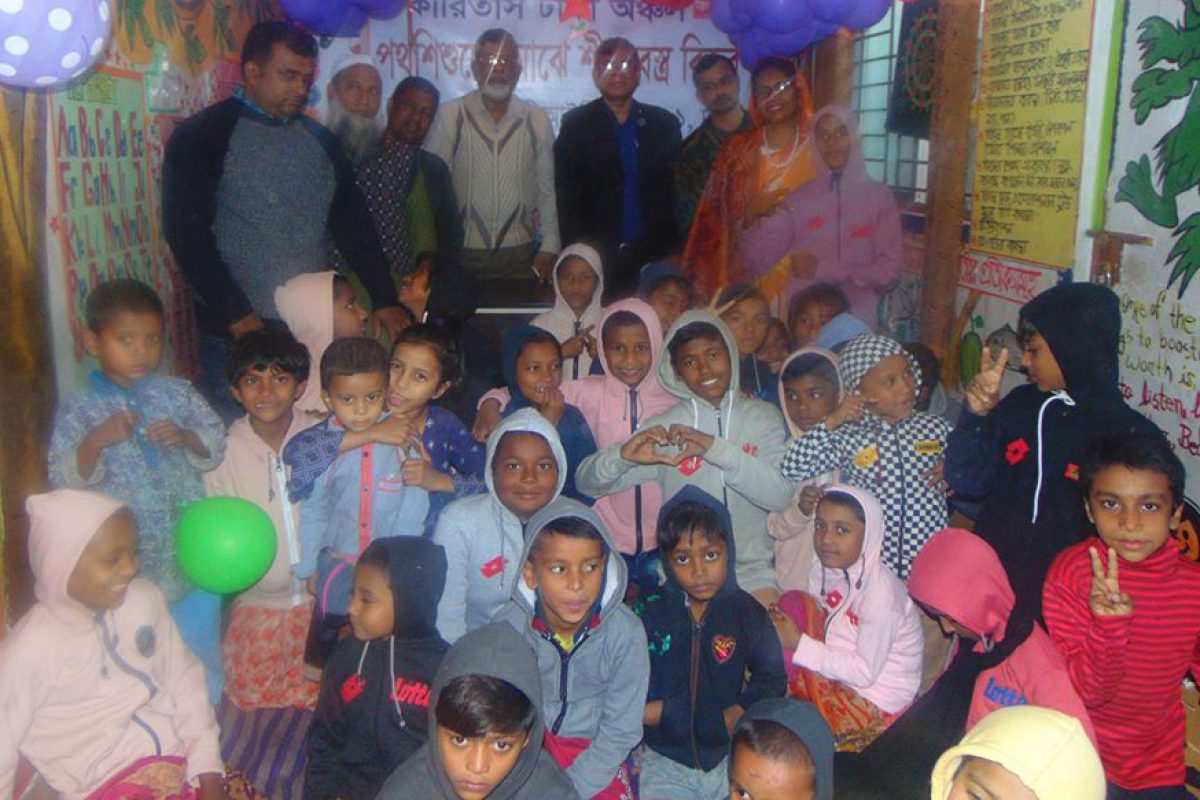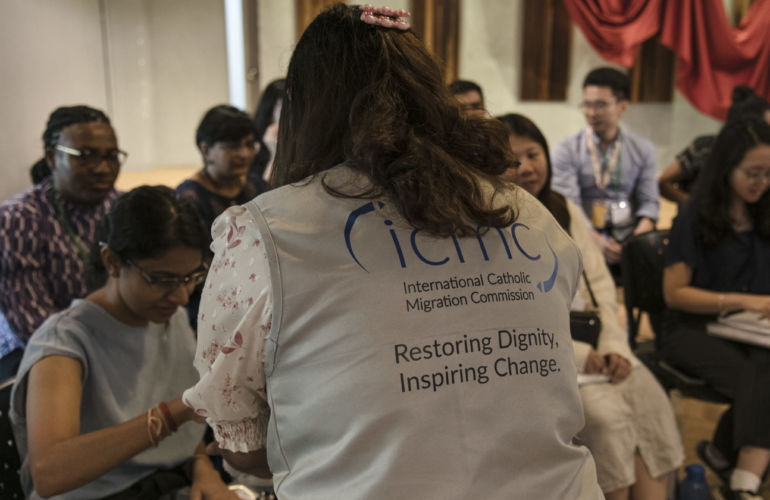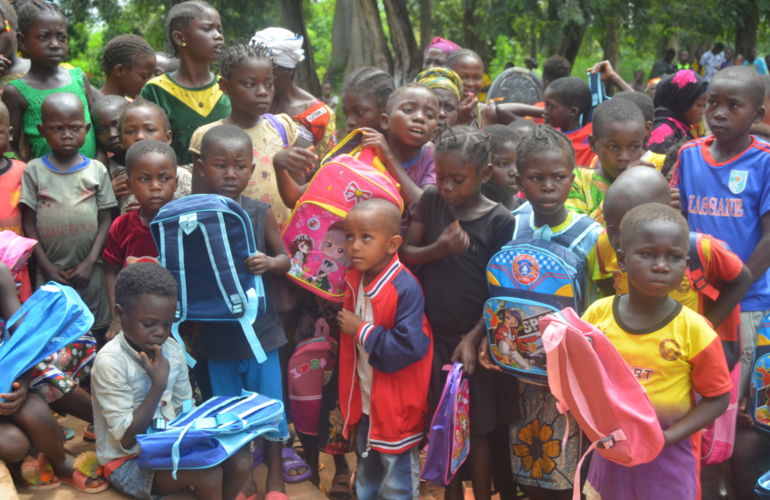ICMC Efforts to Address Needs of Migrant Children in Asia-Pacific

One billion people are on the move today and one in eight is a child. Being young, children in migration are particularly vulnerable to risks such as malnutrition, human trafficking, sexual abuse and lack of access to education and healthcare. A round table at ICMC’s Asia-Oceania annual working group meeting in Thailand in December 2019 focused on addressing migrant children’s specific needs and shared examples of members’ good practices.
“In much of the work we do, children are lumped together with adults. Of course, children’s needs are different,” explained Dr. Nenette Motus, Regional Director of the International Organization for Migration during ICMC’s Asia-Oceania Working Group’s panel on child migrants and refugees. For this reason, responses to migrant children’s needs should be flexible, age-appropriate and tailored to the best interests of the child.
Because of their youth, migrant children are more exposed to dangers, including sexual exploitation, abuse, violence, neglect, forced marriage and labor exploitation. They often face legal, social and language barriers that bar their access to education. Their health may also be affected by the fact that they are migrants when they face difficulties in accessing healthcare and proper nutrition and suffer psychological stress following trauma. Unaccompanied minors are especially vulnerable.
Unfortunately, special status and rights of migrant children are often ignored. “Children are often seen as appendices of adults. We assume that they follow their families,” said Ms. Pia Oberoi, Senior Advisor on Migration for the UN Refugee Agency.
She stressed the importance of listening to children on the move, of providing them with age-appropriate information so that they can make informed decisions, and of applying best interest assessment procedures before making decisions about their future. The globally-recognized principle of “the best interest of the child” must take precedence over migration management and other administrative concerns, she said.
Dr. Motus talked about the rights of children left behind by parents who migrate for work. Families in the country of origin can benefit from remittances, which might allow children to access services such as healthcare and education. However, labor migration also affects family structure, as children are often left in the care of extended family members or friends.
Dr. Motus shared the conclusions of studies conducted in Sri Lanka and Bangladesh, which found that children left behind were more vulnerable to socio-emotional maladjustment, behavioral problems and malnutrition.
Ms. Oberoi mentioned that government choices are often the cause of migrant children’s vulnerability. “There is a tendency to think of [labor migrants] as units of labor who provide economic benefits to a country or a community” instead of “as people who have families who need or want to join them.” By restricting access to regular migration, governments push children and their families to resort to unsafe, irregular channels.
Ms. Oberoi presented the UN Convention of the Rights of the Child as a tool to help protect children on the move. Dr. Motus explained how the Global Compact for Safe, Regular and Orderly Migration also protects migrant children and allows them to access their rights.
Alternatives to Incarceration in Australia
Sr. Maryanne Loughry of the Sisters of Mercy, representative for Oceania on ICMC’s Governing Committee, shared how the Church and other Australian organizations played a key role in advocating for the release of minors being held in detention centers.
When the number of asylum-seekers arriving in Australia by boat increased a decade ago, the government responded by detaining families and unaccompanied minors. Those whose asylum claim was accepted would eventually be permitted to settle in Australia while those whose application was rejected were deported to their country of origin. The decision process could be very lengthy.
Detention tends to exacerbate asylum-seekers’ trauma and unaccompanied minors are particularly at risk of a breakdown in mental health. Even a short period of detention can be deeply traumatic for a child. Many detainees turned to self-harm and suicide as a result of their incarceration.
In early 2010, a group of religious and secular organizations, including the Jesuit Refugee Services, began exploring alternatives to incarceration for unaccompanied minors. One of these alternatives was community detention, which allows a certain amount of freedom. Detainees are required to live in a mandated location and must respect a curfew. They are, however, able to move around in the community, engage in activities and social events and do their own shopping, which restores some normalcy to their lives.
This group of organizations identified suitable housing and pledged to organize accommodation for asylum-seekers if they were released. They also identified qualified providers of youth services. The group presented a proposal to the Australian government, which agreed to grant children and families the right to live in community detention.
The mental health of migrants held in community detention was better than that of those incarcerated. Their limited freedom also allowed them to become familiar with the country’s culture and language, facilitating the integration of those whose asylum claim was accepted.
Caring for Street Children in Bangladesh
Mr. Jyoti Gomes, regional director of Caritas Bangladesh, described the work of this ICMC national member organization with internally displaced children. Bangladesh has over 1.5 million street children under the age of 14. These children are orphaned or abandoned or have fled natural disasters, family crises or extreme poverty.
As the children migrate in large numbers from rural areas to the capital, Dhaka, they are obliged to survive by begging, collecting and selling materials for recycling, polishing shoes and doing other forms of informal street work. They are vulnerable to many dangers, including exploitation, sexual abuse and trafficking. “We are trying to support these children so that they may have a better life in the future,” said Mr. Jyoti.
The Commission for Justice and Peace of the Episcopal Conference of Bangladesh has established drop-in centers in Dhaka that offer street children access to clean drinking water, showering facilities, healthcare and nutritional support as well as informal education and psycho-social support.
Children who wish to enroll in the formal education system are encouraged to do so, and their school fees are paid. A night shelter provides vulnerable street girls, who are particularly exposed to abuse and exploitation at night, with a safe place to spend the night.
The shelter also offers specialized care for children with disabilities. Children above the age of 14 can attend vocational and skills training, allowing them to enter the job market and become self-sufficient. The Commission also works to reunite children separated from their families.
The Commission implements awareness-raising and support activities on the streets of Dhaka to reach out to street children and protect them. It carries out advocacy activities, pushing for better protection of street children. Campaign topics include ending law enforcement’s harassment and providing street children with birth certificates, which are required to enroll in the school system or professional training programs.
The panel was part of to ICMC’s Asia-Oceania Working Group’s annual meeting, held from 1 to 4 December 2019 in Bangkok, Thailand. The Working Group was founded in 2008 to strengthen collaboration between countries and within the Church on migration-related issues in the region.
This year’s meeting gathered over 70 participants from 25 countries, representing the Holy See, Episcopal Conferences, local civil society organizations, international organizations and think tanks. The conference was conducted jointly with the High-Level Regional Conference organized by ICMC’s Initiative on the Future of Work.
- In this video interview, Mr Jyoti Gomes from Caritas Bangladesh discusses the organization’s work assisting migrant street children.


